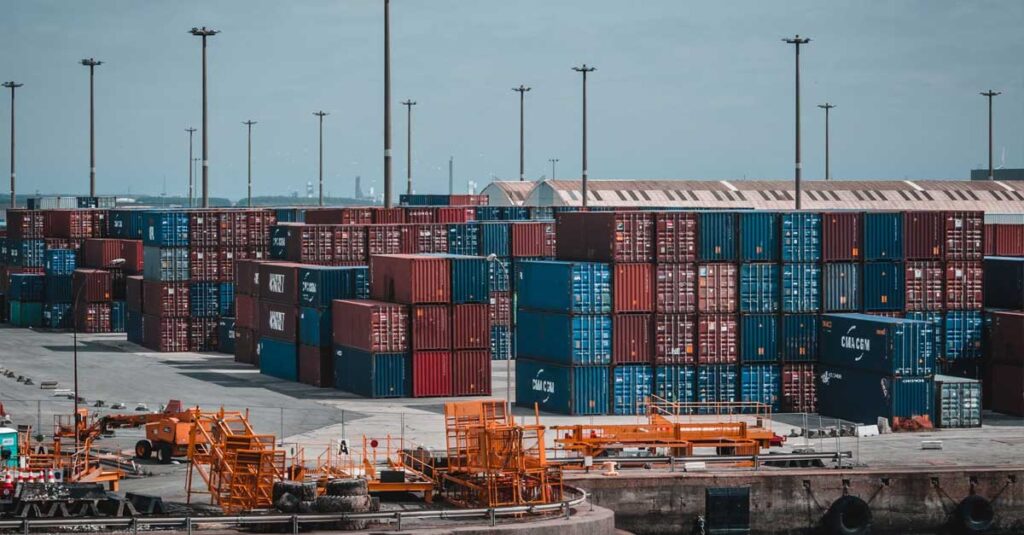What is the impact of the economic measures on Belgian trade?
Brussels - The sanctions declared by the Office of Foreign Assets Control against Russia initially affect some 16,500 companies worldwide, spread across 21 countries. That's according to business data specialist Altares Dun & Bradstreet after analyzing the corporate structures of Russia's largest companies and holding companies. These companies are all operating under the flags of the seven largest Russian financial institutions and the 13 Russian companies, who are initially targeted by the sanctions.

According to David Verheecke, Managing Director Benelux at Altares Dun & Bradstreet, the volume shows the huge impact of the various sanctions on other international companies: "First of all, of course, what is happening in Ukraine is terrible and our first thoughts go out to all those involved there. However, the consequences also affect the entire world trade; more than 7.5 million direct and indirect supplier relationships with these companies are visible worldwide. Thus, we see that as many as 374,000 companies worldwide depend on Russian suppliers in the first or second line of logistics. For Ukraine, these are some 241,000 companies.”
How dependent is Belgium
When Altares Dun & Bradstreet zooms in on the figures, it sees the impact on Belgian trade: 2156 companies trade directly or through-via with Russia and Ukraine. 61 Belgian companies even have crucial suppliers in Russia, meaning that business operations depend on supplies from those companies.
Altares Dun & Bradstreet figures say that 25 countries worldwide depend "to a large extent" on wheat and meslin from Russia and Ukraine. Many nations also depend on the two superpowers for coal (24 countries) and gas (16 countries). In addition, there are other general impacts that organizations will experience in their business operations, customer relationships and supply chain because of the economic sanctions:
Expensive (raw) materials
If the conflict continues for a long time or escalates, raw materials such as gas, oil and metal in particular will become much more expensive. Europe will then have to get these from elsewhere. This brings with it additional costs, which companies have to pass on to their end customers. So prices are rising all along the supply chain, adding to inflation. Belgium, by the way, buys about 20 percent of its oil and gas from Russia. For the Netherlands, it is about 25 percent.
More need for research
Bedrijven moeten bekijken wie hun klanten en leveranciers zijn en of toekomstige betalingen in de toekomst stroever zullen verlopen. Bij verdere escalatie van het conflict is het denkbaar dat handel met Rusland compleet onmogelijk is: organisaties moeten dan een plan B hebben om (snel) aan hun grondstoffen te kunnen komen. Incidentally, this applies not only to direct suppliers, so companies would be well advised to know whether their suppliers directly or indirectly dependent on Russia or Ukraine.
Slowing economic recovery
Worldwide organizations are doing their best to recover after more than two years of corona. The conflict in Ukraine is slowing this recovery. Delayed or changed trade routes and inflation can put organizations in trouble and shrink the GDP of many countries. Again, this makes exploring alternatives more important for organizations: they need to look at how they can be more flexible now and in the future, in order to minimize the impact of a possible future crisis like this.
David Verheecke: “It is crucial that organizations understand the family trees of their customers and suppliers. Doing business with organizations involved in this conflict is a sensitive issue but also a practical dilemma. As a company you therefore cannot escape doing research into where your products and raw materials come from and where your money goes. Only in this way can you find alternatives that will help your organization recover after this crisis..”
About Altares Dun & Bradstreet
Altares Dun & Bradstreet is in de Benelux marktleider in het verzamelen, verwerken en leveren van zakelijke bedrijfsgegevens. Als bedrijfsdataspecialist en partner van het wereldwijde netwerk van Dun & Bradstreet (NYSE:DNB) bieden zij hun klanten toegang tot data van meer dan 500 miljoen bedrijven in 220 landen. De data cloud-oplossingen van Altares Dun & Bradstreet leveren inzichten die klanten in staat stellen om risico’s te beperken, hun omzet te verhogen, kosten te verlagen en zo hun bedrijfsprestaties te verbeteren.
